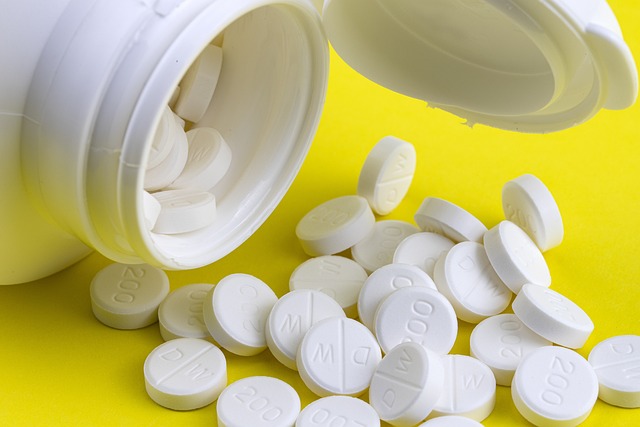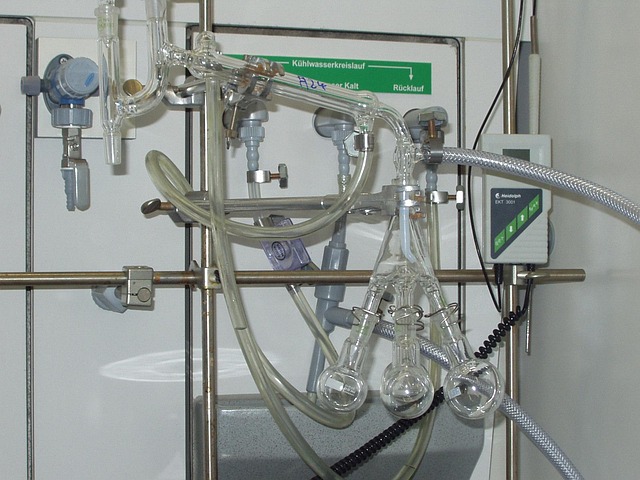Il ruolo dei chiller nell'industria farmaceutica
Il controllo qualità nell'industria farmaceutica è legato alla salute umana. I chiller svolgono un ruolo importante nel controllo qualità. Questo articolo introduce l'uso dei chiller di processo nella produzione farmaceutica.

Controllo della temperatura della reazione chimica
Le reazioni chimiche sono essenzialmente processi di cambiamento energetico. La sintesi di molti intermedi farmaceutici e API rilascia una grande quantità di calore durante il processo di reazione. Se questo calore non viene controllato e trasferito in tempo, possono verificarsi i seguenti problemi:
• Aumento delle reazioni secondarie: Un aumento della temperatura della reazione accelererà il verificarsi di reazioni secondarie oltre la reazione target, aumentando le impurità e influenzando la purezza del prodotto.
• Rendimento ridotto: Alcune reazioni chimiche possono raggiungere rese più elevate solo all'interno di un intervallo di temperatura specifico. Temperature troppo alte o troppo basse causeranno una diminuzione dell'efficienza della reazione.
• Decomposizione del prodotto: Alcuni prodotti target o intermedi sono instabili ad alte temperature e possono degradarsi o carbonizzarsi, producendo sottoprodotti carbonizzati o residui neri.
• Pericoli per la sicurezza: Se la temperatura non viene raffreddata in tempo per una reazione fortemente esotermica, è facile che si verifichi un aumento incontrollato della temperatura, un aumento della pressione, sovrappressione del reattore e, nei casi più gravi, possono verificarsi esplosioni.
Per garantire che la reazione sia controllabile, sicura ed efficiente, il reattore deve essere dotato di un sistema di controllo della temperatura affidabile. Il più comune è la giacca del reattore. Iniettando il refrigerante nella giacca, è possibile raffreddare indirettamente i reagenti nel reattore. Il chiller può essere collegato alla giacca del reattore per aiutare a controllare con precisione la temperatura del refrigerante (±0,02℃). Questa alta precisione non può essere raggiunta da torri dell'acqua comuni o serbatoi di acqua circolante.
Controllo costante della temperatura nel processo di fermentazione
Il processo dei microrganismi che metabolizzano sotto determinate condizioni ambientali per produrre antibiotici, preparati enzimatici, aminoacidi, alcol e altri prodotti è chiamato fermentazione. La temperatura è un fattore chiave che influenza l'attività microbica e il tasso metabolico. Ceppi diversi hanno temperature ottimali diverse. Una temperatura troppo bassa influisce sul ceppo e prolunga il tempo di fermentazione. Una temperatura troppo alta può causare la morte microbica o un disordine metabolico. Inoltre, la temperatura può influenzare il tipo di prodotto, il che può ridurre la purezza del prodotto target.
Il metabolismo microbico rilascia calore, e si verificherà una distribuzione non uniforme della temperatura nel serbatoio di fermentazione. Inoltre, i microrganismi in diverse fasi richiedono temperature diverse, e le esigenze di controllo della temperatura sono molto rigorose. Il sistema di chiller industriale può fornire una fonte di raffreddamento uniforme e stabile per il serbatoio di fermentazione, aiutando a migliorare l'efficienza della fermentazione e la qualità del prodotto.
Distillazione e condensazione
La distillazione utilizza il principio dei diversi punti di ebollizione dei componenti per separare i liquidi misti. Dopo che il liquido misto è stato riscaldato, il componente con il punto di ebollizione più basso diventa prima vapore e entra nel sistema di condensazione. Dopo la condensazione, si trasforma di nuovo in liquido e viene raccolto. Questo è il processo di estrazione del prodotto target.
Se il vapore non viene raffreddato in tempo, la pressione nella tubazione aumenterà, aumentando i rischi per la sicurezza. La distillazione richiede riscaldamento e la condensazione richiede raffreddamento. Entrambi i passaggi consecutivi richiedono un controllo stabile e preciso della temperatura. Il chiller può operare 24 ore al giorno per fornire un controllo continuo della temperatura. Grazie alla rapida velocità di raffreddamento, la conversione del vapore del componente target può essere più completa, migliorando il tasso di recupero e la purezza.

Cristallizzazione e purificazione
La cristallizzazione si riferisce al cambiamento delle condizioni di temperatura o del solvente per consentire al soluto sovrasaturo di precipitare e formare cristalli con una struttura regolare e alta purezza. Tuttavia, a volte i cristalli risultanti possono contenere impurità, che devono essere rimosse. Questo processo richiede innanzitutto la dissoluzione della sostanza target nel solvente, il riscaldamento per dissolverla e la formazione di una soluzione saturata uniforme. Successivamente, viene lentamente raffreddato a una temperatura specifica per consentire al soluto di precipitare in cristalli. I cristalli vengono filtrati dalla soluzione madre e essiccati per ottenere il prodotto finito.
La qualità e la forma dei cristalli dipendono dalla velocità di raffreddamento e dalla precisione della temperatura. Un processo di raffreddamento instabile farà sì che le impurità vengano miscelate nei cristalli. Il chiller ha una funzione di controllo della temperatura a curva, che può eseguire ripetutamente il programma della curva di riscaldamento e raffreddamento. Questo ti aiuta a utilizzare la stessa velocità di incremento della temperatura nella produzione a lotti per garantire la qualità della cristallizzazione.
Conservazione dei farmaci
Gli ingredienti attivi nel farmaco possono decomporre quando la temperatura è troppo alta o fluttua frequentemente, causando problemi di qualità come il cambiamento di colore, odore anomalo e decomposizione del liquido torbido, che influisce sulla stabilità e sull'efficacia del farmaco. Pertanto, i regolamenti di gestione dei farmaci di vari paesi hanno rigide normative sulla temperatura di conservazione dei farmaci. I congelatori industriali di grado medico possono fornire condizioni ambientali stabili per i farmaci conservati in essi.
Raffreddamento delle apparecchiature
Le attrezzature farmaceutiche come reattori, centrifughe, miscelatori e liofilizzatori generano calore durante il funzionamento. Per evitare arresti per surriscaldamento e denaturazione del materiale, è necessario utilizzare chiller per fornire una fonte di raffreddamento stabile che aiuti a mantenere la temperatura operativa ottimale.
Investi in chiller farmaceutici sicuri ed efficienti
I chiller nell'industria farmaceutica sono attrezzature importanti per garantire la continuità del processo, la qualità del farmaco e la sicurezza della produzione. LNEYA ha 15 anni di esperienza nella progettazione e produzione di apparecchiature per il controllo della temperatura, offrendo chiller standard e personalizzati. Se stai cercando un chiller per il tuo processo o hai una richiesta di quotazione per un modello specifico, contattaci!
Raffreddatori correlati
CONTATTO
TEL:TELEMATICO
EMAIL: EMAIL: EMAIL: EMAIL: EMAIL: EMAIL: EMAIL
WeChat e WhatsApp:

Wechat QR

Hai una domanda o hai bisogno di un preventivo? Compila il modulo qui sotto e il nostro team ti risponderà entro 24 ore.
 Refrigeratori industriali LNEYA Produttore Fornitore
Refrigeratori industriali LNEYA Produttore Fornitore














